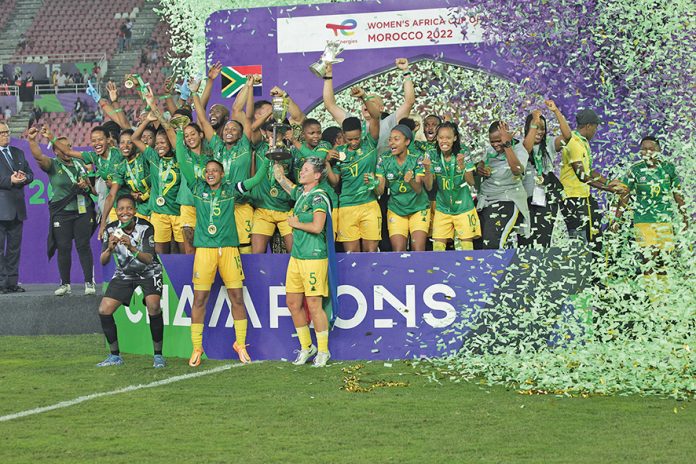Safa has to come up with a clear and unambiguous, coherent but also transparent remuneration policy and incentive scheme guiding how national teams are rewarded for winning major football events.
An unnecessary altercation ensued this week when football journalists dug deep, seeking clarification on where the money Safa will be dispensing as part of the remuneration bonuses for Banyana Banyana after they were crowned African champions in Morocco last weekend, will be coming from.
The crux of the matter is that Safa promised Banyana R9.2-million in bonuses if they won the Women’s Africa Cup of Nations (Wafcon) trophy, which they did, giving the nation something to shout about and be proud of.
What my colleagues in the media wanted clarified by Safa president Danny Jordaan was whether the bill for Banyana’s remuneration and bonuses comes directly from the Safa coffers or if the association will be using the $500 000 (R8.4-million) prize money from CAF.
The government, under Sports Minister Nathi Mthethwa, also pledged R5.8-million to Banyana for their Wafcon victory.
Jordaan, however, did not take kindly to being questioned about the payment structure for Banyana, asking why rugby bosses were not grilled about the Springboks’ bonus payments after winning the World Cup in 2019.
Jordaan explained that the prize money belongs to Safa and not the players.
“The money that comes from the sponsors and elsewhere is Safa’s money. It doesn’t go to the players, same with the prize money,” Jordaan clarified.
The Safa president conceded that Banyana’s bonus structure was not the same as Bafana Bafana’s and this must be rectified. But for their Wafcon win, they are set to get a shot in the arm of R400 000 each.
Five players from Limpopo received R100 000 from the provincial government and other such incentives are flowing to our African football queens.
On another front, Fifa has released its Increasing Global Competitive research document. It paints a grim picture of football development in the country, and the blame for the shortcomings lies at the door of Safa.
The 81-page report puts the spotlight on junior national teams and found that the juniors are not exposed to competitive football and are left to idle, only to be called up when there is a major tournament. The same sentiment was echoed by Bafana coach Hugo Broos, but he was wrapped over the knuckles and had to apologise.
Safa must come up with concrete measures to develop junior players, our future Bafana and Banyana, nationally. You cannot rely on clubs, Jordaan and Co.
For the latest sports news from Sunday World, click here.
Follow @SundayWorldZA on Twitter and @sundayworldza on Instagram, or like our Facebook Page, Sunday World, by clicking here for the latest breaking news in South Africa. To Subscribe to Sunday World, click here.




